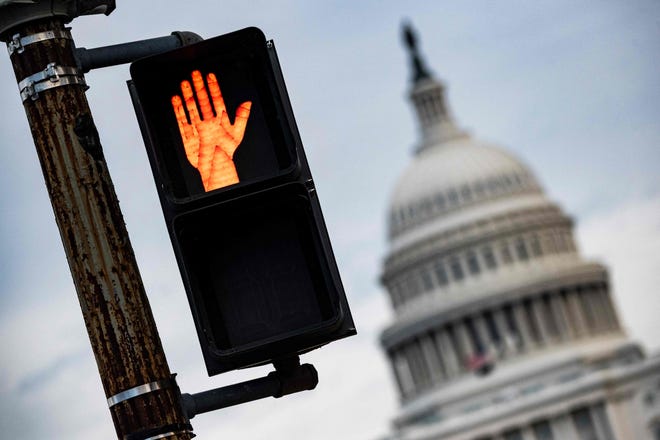
The country’s credit rating could face additional pressure if the government shuts down next week, according to a new report from Moody’s Investors Service.
Congress has less than a week to pass a federal budget, and lawmakers are bracing for a shutdown on Oct. 1 as House Speaker Kevin McCarthy struggles to unite House Republicans behind a deal.
A shutdown would be “credit negative for the US sovereign,” reads Moody’s report published Monday.
While a short-lived shutdown would not impact government debt service payments and isn’t expected to disrupt the economy, Moody’s said it would “underscore the weakness” of U.S. institutional and governance strength compared to countries with similar credit ratings.
“In particular, it would demonstrate the significant constraints that intensifying political polarization put on fiscal policymaking at a time of declining fiscal strength,” Moody’s report reads.
Learn more: Best personal loans
If the potential shutdown does drag on, it would “likely be disruptive both to the US economy and financial markets,” although Moody’s notes that any government shutdown is more likely to be brief and concentrated in areas with a large government presence, like Washington, D.C.

Would a shutdown affect travel?Here’s what to know
If the credit rating agency does issue a downgrade, the U.S. would be stripped of its last remaining AAA score from a major credit rating agency.
Fitch Ratings downgraded the nation’s credit rating one notch to AA+ last month, noting that “repeated debt-limit political standoffs and last-minute resolutions have eroded confidence in fiscal management.” S&P Global, the third major credit rating agency, downgraded the country in 2011 during a similar debt ceiling showdown.
“Fiscal policymaking is less robust in the US than in many Aaa-rated peers, and another shutdown would be further evidence of this weakness,” according to the report.
For consumers, credit rating downgrade could mean higher interest rates on Treasury bonds, which would in turn push up rates on everything from mortgages to corporate bonds.






